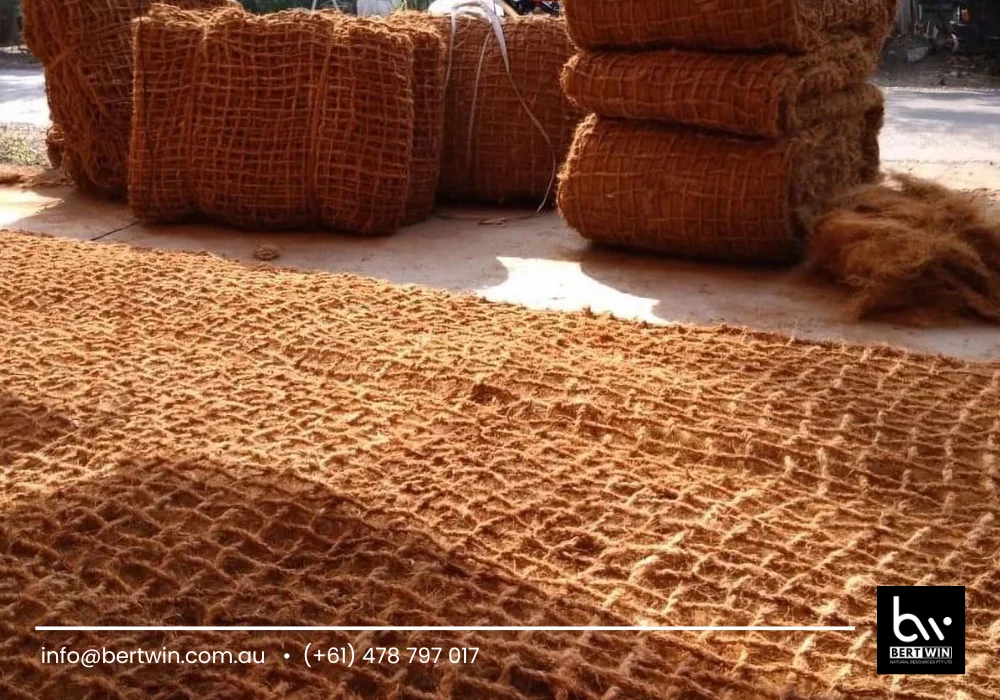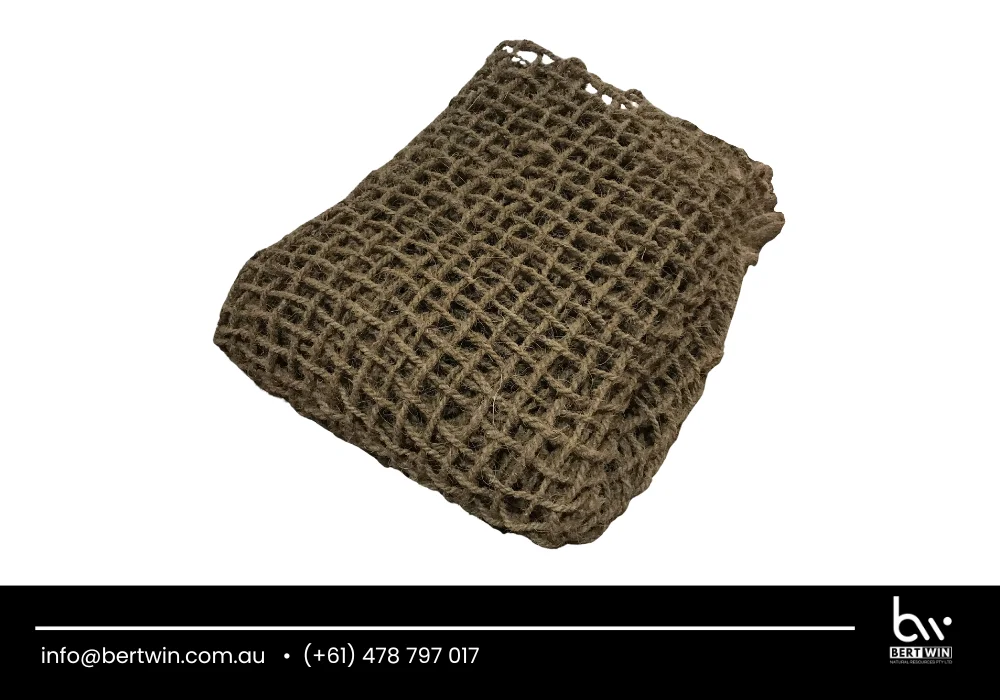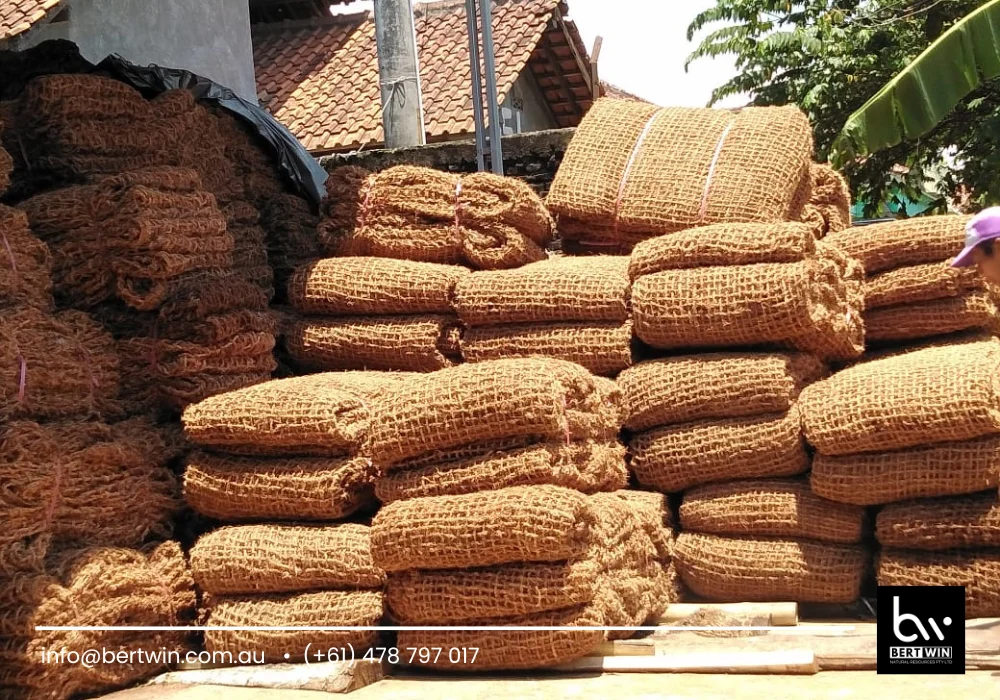Understanding what cocomesh used for helps highlight the versatility and importance of this natural product in various industries. Made from coconut coir fibers, cocomesh is a biodegradable and eco-friendly material widely employed in soil stabilization, erosion control, landscaping, and agriculture. This article explores the primary uses of cocomesh, its benefits, and tips for effective application.

What is Cocomesh?
Cocomesh is a natural fiber mat produced by weaving or stitching coconut coir into sheets or nets. Coir fibers come from the husk of coconuts, making cocomesh a renewable and sustainable material. Its fibrous texture and durability provide excellent soil retention and moisture conservation properties, making it ideal for environmental protection projects.
Common Uses of Cocomesh
Soil Erosion Control and Slope Stabilization
One of the main purposes of cocomesh used for is preventing soil erosion, especially on slopes, embankments, and riverbanks. When placed over vulnerable soil, cocomesh helps anchor soil particles and reduces runoff velocity during rainfall, effectively minimizing erosion.
Cocomesh acts as a temporary ground cover, allowing vegetation to establish roots. As plants grow, they further stabilize the soil, and the cocomesh gradually biodegrades without harming the environment.
Landscaping and Garden Mulching
In landscaping, cocomesh is often used as mulch to protect soil surfaces in gardens, parks, and public green spaces. It helps retain soil moisture, regulate temperature, and suppress weed growth. The natural appearance of cocomesh blends well with plant beds, providing both functional and aesthetic benefits.
Gardeners appreciate cocomesh for its ability to improve soil health over time due to its organic composition.
Agriculture and Horticulture Applications

Cocomesh is extensively used in agriculture for protecting seedlings and young plants from environmental stress such as heavy rain, wind, and drought. It maintains moisture levels around roots and promotes healthy plant growth.
Additionally, cocomesh can be used as a planting medium, especially in hydroponic and soilless systems, thanks to its water retention and aeration properties.
Environmental Restoration and Reforestation
In ecological restoration projects, cocomesh serves as a biodegradable cover that supports the rehabilitation of degraded lands, mining sites, and construction areas. It provides a favorable environment for seed germination and prevents sediment loss in fragile ecosystems.
By using cocomesh, restoration efforts can achieve sustainable outcomes without introducing synthetic materials that may damage natural habitats.
Benefits of Using Cocomesh
- Biodegradability: Cocomesh naturally decomposes, enriching soil and eliminating waste.
- Renewable Material: Made from coconut husks, cocomesh supports sustainable resource use.
- Ease of Installation: Lightweight and flexible, cocomesh is easy to deploy in diverse terrains.
- Cost-Effective: Provides an affordable alternative to synthetic erosion control products.
- Improves Soil Health: Enhances moisture retention and supports microbial activity.
Tips for Effective Use of Cocomesh
- Prepare the Site: Remove debris and level the soil surface before installation.
- Anchor Properly: Use stakes or pins to secure cocomesh firmly to prevent displacement.
- Overlap Edges: Ensure overlapping sections to avoid gaps where soil can escape.
- Combine with Seeding: Apply seeds or plant plugs soon after installation for best revegetation results.
- Regular Monitoring: Check the installation periodically and repair any damage.

Conclusion: Versatile and Eco-Friendly Material — Cocomesh Used For Many Applications
In conclusion, cocomesh used for soil erosion control, landscaping, agriculture, and environmental restoration proves to be an invaluable tool for sustainable land management. Its natural origin, biodegradability, and practical properties make it a preferred choice over synthetic alternatives.
For further information, you may contact WhatsApp at (+61) 478797017 or via email at info@bertwin.com.au.
